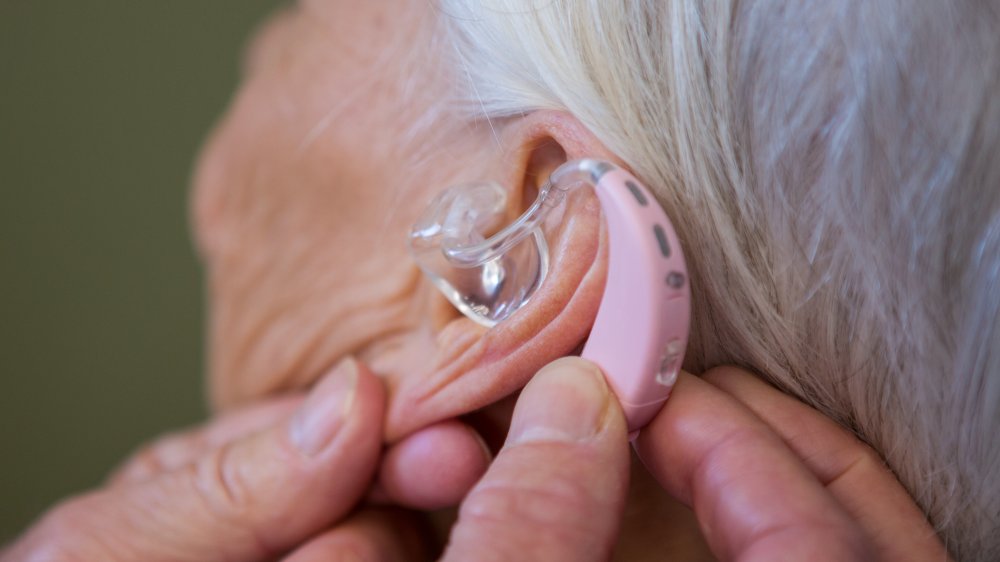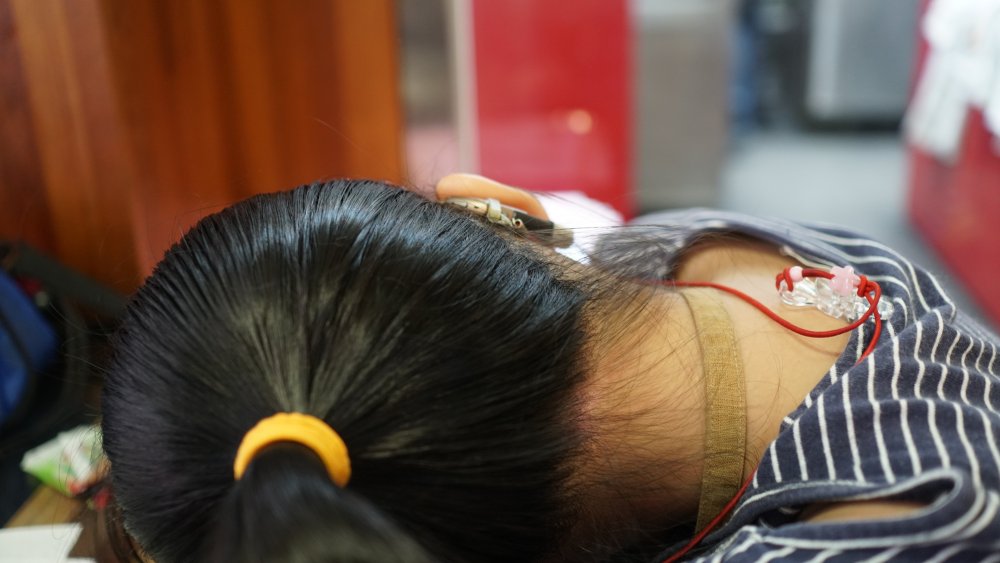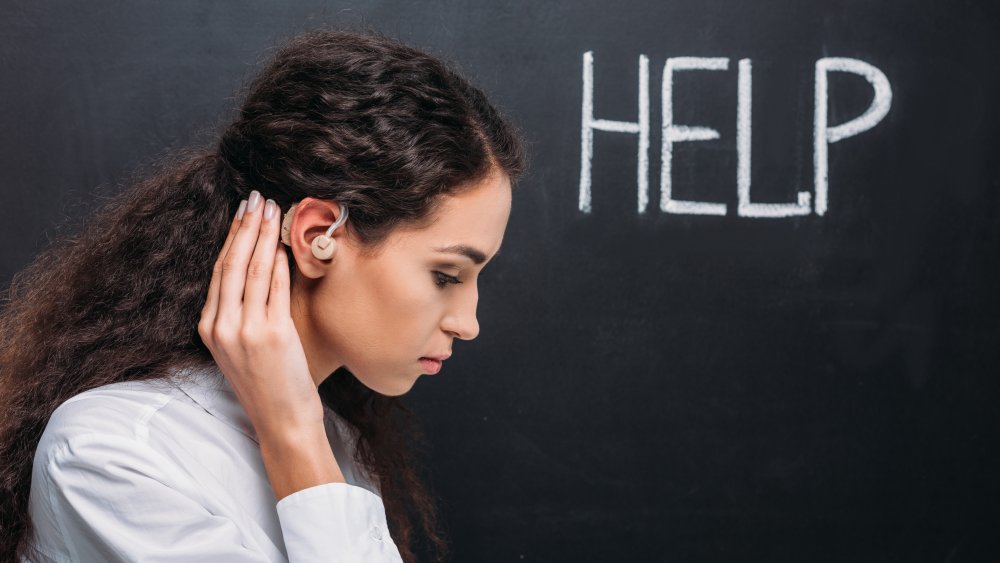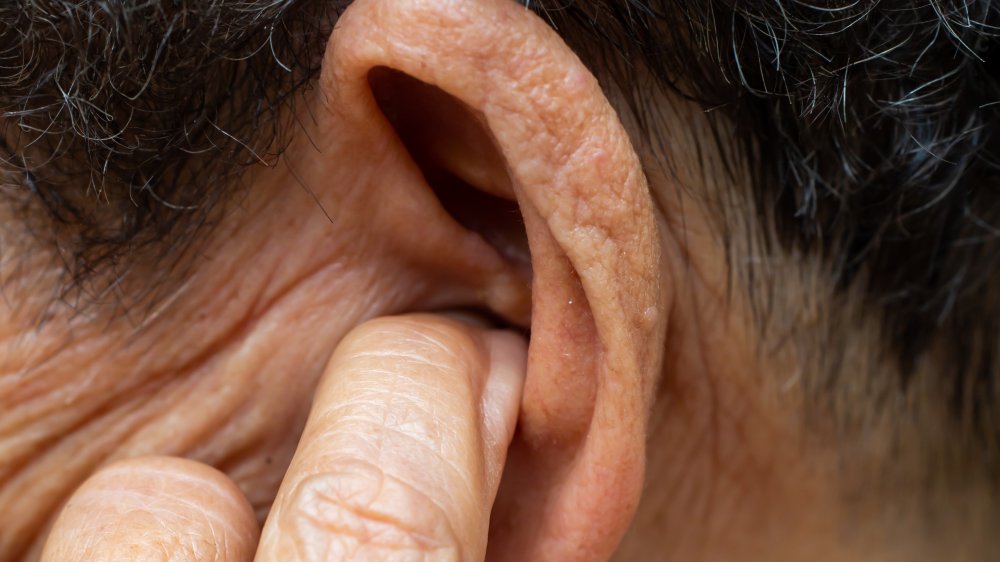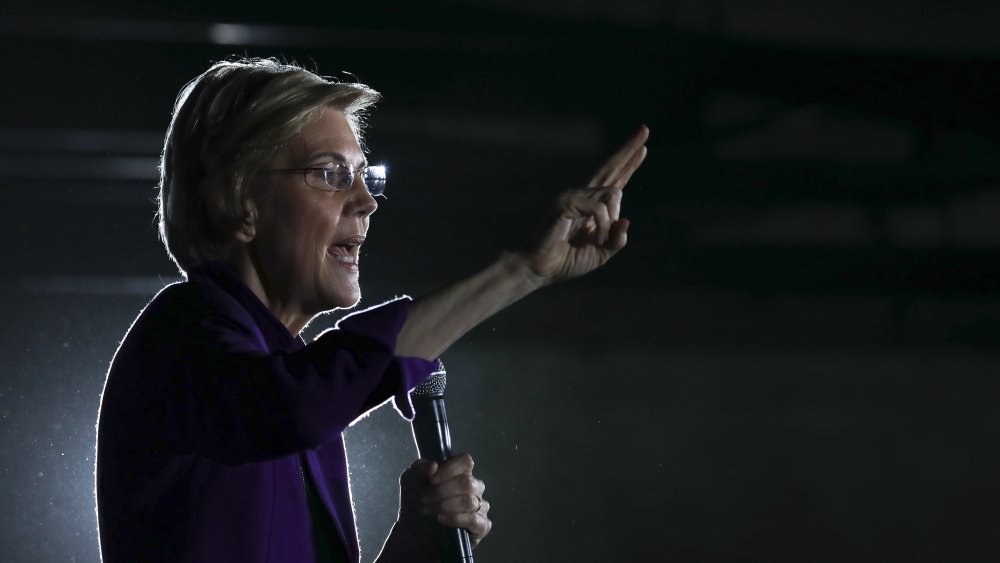Why Are Hearing Aids So Expensive?
If there's one thing that Americans get fired up about, it's healthcare. It's easy to see why. The United States is the only high-income country that still hasn't implemented a universal healthcare system, and the cracks are showing: as reported by Reuters, not only does the U.S. spend about twice what other high-income nations spend on healthcare, but the "land of the free" also has the highest infant mortality rate, lowest life expectancy, and insanely high prices for the same drugs. Pretty embarrassing, considering how wealthy the U.S. really is, and it's no wonder that healthcare has ignited such a fervent debate in the 2020 presidential election, with politicians such as Bernie Sanders pushing for a new system. It's worth noting that medical debt isn't just caused by emergency room bills, though. While U.S. healthcare coverage is ridiculously expensive, another problematic factor is the insanely inflated price of assistive devices such as hearing aids, which usually aren't covered by insurance.
The price of hearing aids, for the record, is a scam. They don't need to be so expensive. Here's why they are, anyway.
The tragic impact of hearing loss
Hearing loss impacts people from all walks of life, whether it's your neighbor or Eric Clapton. An estimated one in eight Americans over the age of 12 has experienced some degree of hearing loss in both ears, according to official stats from the National Institute on Deafness and Other Communication Disorders (NIDCD), which is about 30 million people. Among adults aged 70+ who would benefit from hearing aids, fewer than one in three have ever used them.
Now, the biggest problem with these figures becomes clear when you look at the serious toll hearing loss takes on a person's life, happiness, and future. Back in 2014, the NIDCD studied data across multiple demographics, and found a substantial link between hearing loss and depression. Older generations are significantly at risk, because as experienced healthcare professionals will tell you, an elderly person with hearing loss can often be misdiagnosed by friends and family as experiencing dementia. Keep in mind that the symptoms of hearing loss, as explained on the Philadelphia Enquirer, are confusion, social withdrawal, trouble following conversations, making strange comments during conversations, and other things that could cause others to treat them as if they have a cognitive disease, when in reality, they just need a pair of hearing aids.
How insane are those hearing aid prices, huh?
If you or a family hasn't experienced hearing loss, you might be shocked to discover how much hearing aids cost. As of 2019, according to Consumer Affairs, the cost of one "cheap" hearing aid (cough) is a wallet-breaking $1,500 to $,3000. Yes, that's the out-of-pocket cost. While companies will tout that you can pay for these things in monthly installments, it's beyond ridiculous that an assistive device for a disabled person would require a monthly charge from a disabled person, as if the hearing aid were somehow equivalent to a cable TV bundle. More expensive hearing aids, meanwhile, cost up to $6,000 apiece.
How they get away with profiting off people's suffering
The first thing that shocks many seniors, when they first develop hearing problems, is that a set of hearing aids generally won't be covered by Medicare, as explained by the Chicago Tribune. Private insurance plans aren't any better. Only 23 states currently require health insurance companies to provide coverage (full or partial) to kids with hearing loss, and that number shrinks to five states (!) when it comes to adults. In practice, this means that most insurance companies won't cover hearing aids, according to Healthy Hearing, leaving many people priced out.
The price of hearing aids has inflated exponentially over the years, according to Audicus, and for no good reason. Despite the fact that the components of today's digital hearing aids cost these companies no more than $50 to $150 a pop, the price of a hearing aid has more than doubled since 1991. What's their excuse? Essentially, hearing aid manufacturers have made a point to invest major time and resources into making even the ordinary hearing aid top of the line, by adding fancy features such as Bluetooth, wireless controls, and other features that have nothing to do with hearing loss, for the sheer purpose of jacking up the price. They control the market, so they set the prices, and line their wallets with the spoils.
Now, if lower cost, over-the-counter hearing aids existed, there might be an argument for such devices. They don't, though, and that's the problem: people are forced to either pay ludicrous costs for these overpriced devices, or suffer without hearing aids altogether.
Change is happening
Hopefully, in the near future, this may change.
In 2017, Massachusetts Senator Elizabeth Warren took note of the exorbitant price of hearing aids, and noted that a huge part of the problem was the lack of an affordable, over-the-counter hearing aid alternative, readily available to people. To change that, she initiated the Over-the-Counter (OTC) Hearing Aid Act, gaining the endorsements of politicians on both sides of the aisle, as well as organizations such as AARP and the Hearing Loss Association of America. This was a rare bipartisan moment in today's political scene, and according to CNN, Warren's act was signed into law by President Donald Trump. The impact of this was not immediate, but it is coming: as NPR elaborates, the FDA must first establish (and regulate) a new type of affordable hearing aid, which performs to FDA standards, to be sold over the counter, a process for which they are allotted three years.
Ideally, this new law will allow affordable, lower-cost hearing aids to hit store shelves, improving the lives of countless people. Even further in the future, the entire picture might change: for example, if the Medicare for All plan championed by figures such as Bernie Sanders and Warren herself were to be enacted, it would cover the price of hearing aids altogether. Stay tuned.
